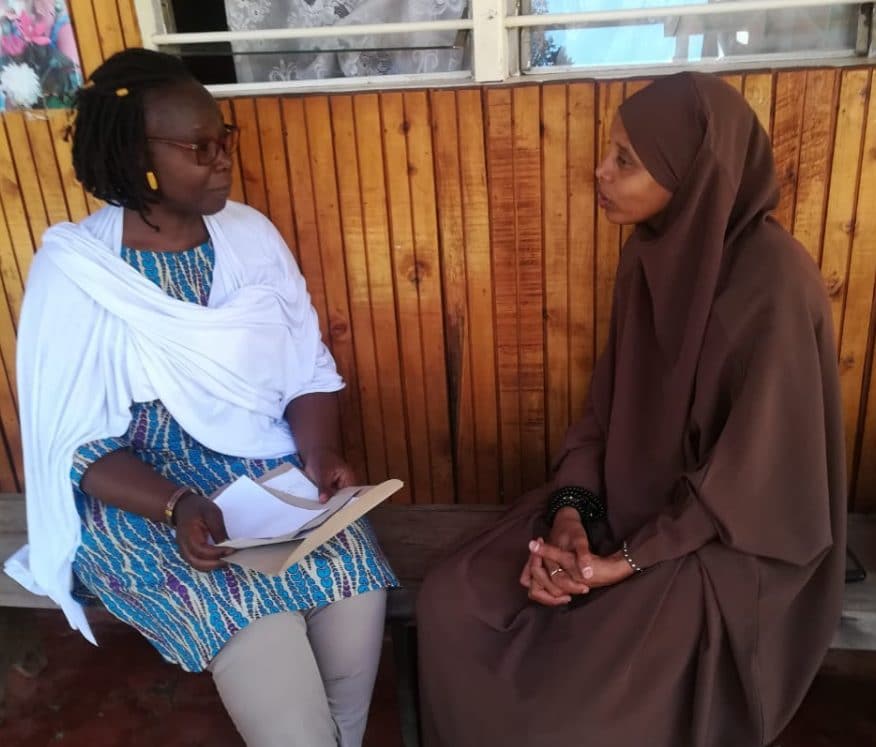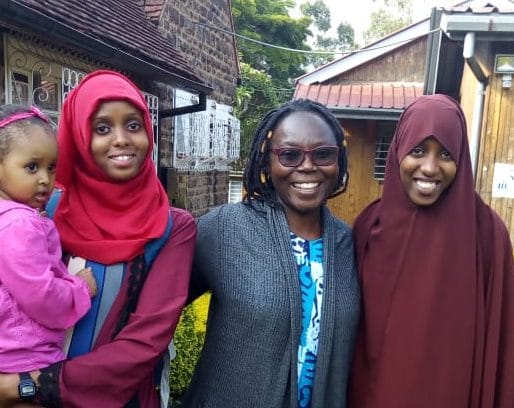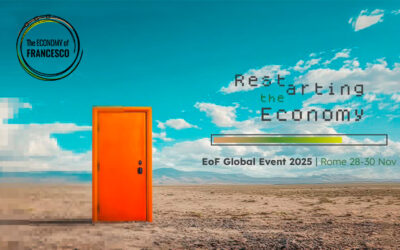Insights from Congolese journalist Liliane Mugombozi, currently based in the Focolare centre in Nairobi. She works at the Jesuit Refugee Service in the Kenyan capital: “African migrants? The majority are not going to Europe but are moving within the African continent”. “According to the international media, Africa is a continent of mass exodus. But this is not true in reality. Most of these migrants are moving within the continent itself. From 2015 to 2017 nearly 19 million people have moved to destinations within Africa”. Liliane Mugombozi knows what she’s talking about when she describes this under-reported phenomenon. She has been observing it closely through her journalistic lens but also with direct experience over the past two and a half years working at the Jesuit Refugee Service (JRS) in the Kenyan capital, Nairobi.  “Since September 2017 more than half a million refugees are living in Kenya. They come mainly from the Great Lakes region, the Horn of Africa and Central Africa, but also from Myanmar, Afganistan etc. Most of them are living in refugee camps at Dadaab and Kakuma; around 64,000 refugees are living within the city of Nairobi itself”. Last December Liliana helped to organize a workshop for 48 young refugees, from many different African countries, including South Sudan and Somalia, to investigate their living conditions as refugees and offer tools to deal with the daily challenges they face, from human rights violations to cultural difficulties. ‘When I look at you – Liliana told them – I don’t see refugees, I see the future of this continent, I see the future of the world. Each one of you has experienced suffering, so who better than you would know how to build strong and fair institutions?’ “From the moment I arrived at JRS in Nairobi, where I work for the secondary school and university students who are able to continue their education because of scholarships and sponsorship, I immediately realised that my service would demand huge flexibility on my part, going way beyond a simply administrative approach. I felt called to share in the suffering behind each one of their stories, to actually meet the person. I understood that the key was to build truly reciprocal relationships with each one.”
“Since September 2017 more than half a million refugees are living in Kenya. They come mainly from the Great Lakes region, the Horn of Africa and Central Africa, but also from Myanmar, Afganistan etc. Most of them are living in refugee camps at Dadaab and Kakuma; around 64,000 refugees are living within the city of Nairobi itself”. Last December Liliana helped to organize a workshop for 48 young refugees, from many different African countries, including South Sudan and Somalia, to investigate their living conditions as refugees and offer tools to deal with the daily challenges they face, from human rights violations to cultural difficulties. ‘When I look at you – Liliana told them – I don’t see refugees, I see the future of this continent, I see the future of the world. Each one of you has experienced suffering, so who better than you would know how to build strong and fair institutions?’ “From the moment I arrived at JRS in Nairobi, where I work for the secondary school and university students who are able to continue their education because of scholarships and sponsorship, I immediately realised that my service would demand huge flexibility on my part, going way beyond a simply administrative approach. I felt called to share in the suffering behind each one of their stories, to actually meet the person. I understood that the key was to build truly reciprocal relationships with each one.”  In the face of so much hope and so much suffering, Liliane was careful not to fall into the trap of confusing the person with their need. “This is a dangerous temptation which would have closed off my heart from a true encounter with these young people, their families, teachers, and with all those around”. The Focolare community in Kenya, especially around Nairobi, has worked in collaboration with the Jesuit Fathers, organizing collections of clothes, food and other essential items, household necessities, books and toys from friends, relations and parishes. Liliana reflects, “We understood firstly we had to overcome our prejudices and get to know the refugees’ own stories in order to create a culture of encounter and of welcome. We are all too aware that we cannot resolve all their problems, but we can become a brother or sister for them. Of course we are only just beginning, but we believe that with Jesus among us, we will find a response to this cry of Jesus on the cross today, in this our own land”.
In the face of so much hope and so much suffering, Liliane was careful not to fall into the trap of confusing the person with their need. “This is a dangerous temptation which would have closed off my heart from a true encounter with these young people, their families, teachers, and with all those around”. The Focolare community in Kenya, especially around Nairobi, has worked in collaboration with the Jesuit Fathers, organizing collections of clothes, food and other essential items, household necessities, books and toys from friends, relations and parishes. Liliana reflects, “We understood firstly we had to overcome our prejudices and get to know the refugees’ own stories in order to create a culture of encounter and of welcome. We are all too aware that we cannot resolve all their problems, but we can become a brother or sister for them. Of course we are only just beginning, but we believe that with Jesus among us, we will find a response to this cry of Jesus on the cross today, in this our own land”.
Stefania Tanesini




0 Comments